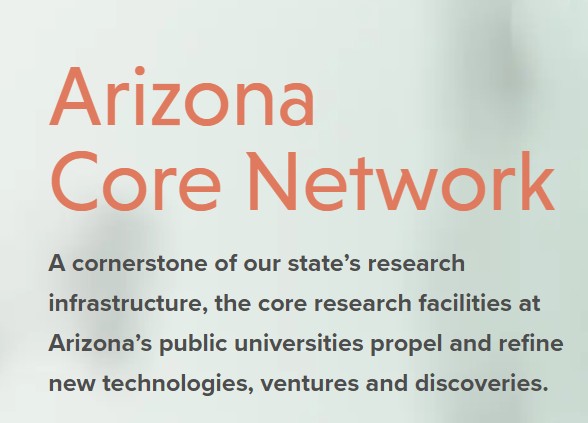
Accelerate Your Program -> Advance Innovation
What Are Core Facilities?
Core research facilities are centralized, shared institutional resources that provide researchers with access to advanced scientific equipment, specialized services, and expert consultation and training. These "cores" operate as a single unit, often with dedicated staff and funding, to facilitate research by making expensive or complex technologies accessible to a broader community of users. Researchers pay user fees to access these services, which helps recover operational costs, and in return, they gain the necessary tools and expertise to advance their projects.
Core facilities exist across Arizona and Arizona based institutions.
This resource page provides a quick look at just some of the resources available. Contact each institution to find the best fit for your program or project.
University Core Facilities
The Arizona Core Network formed to improve access, leverage investment, increase utilization, and boost the collective research competitiveness of our state universities.
The Arizona Core Network represents a range of disciplines, including biological and health sciences, chemical, material and structural analysis, electronics and nanofabrication, forestry and environmental science, and computing and data science. This collaboration is a unified investment in Arizona’s future, seeding growth economically, educationally and entrepreneurially. Our combined resources better position researchers and scientists to tackle issues that affect Arizona — such as health challenges like COVID-19 and Alzheimer’s disease, developing solar technologies to power our towns and cities or combating the forest fires that rage across the state every year.
Learn more
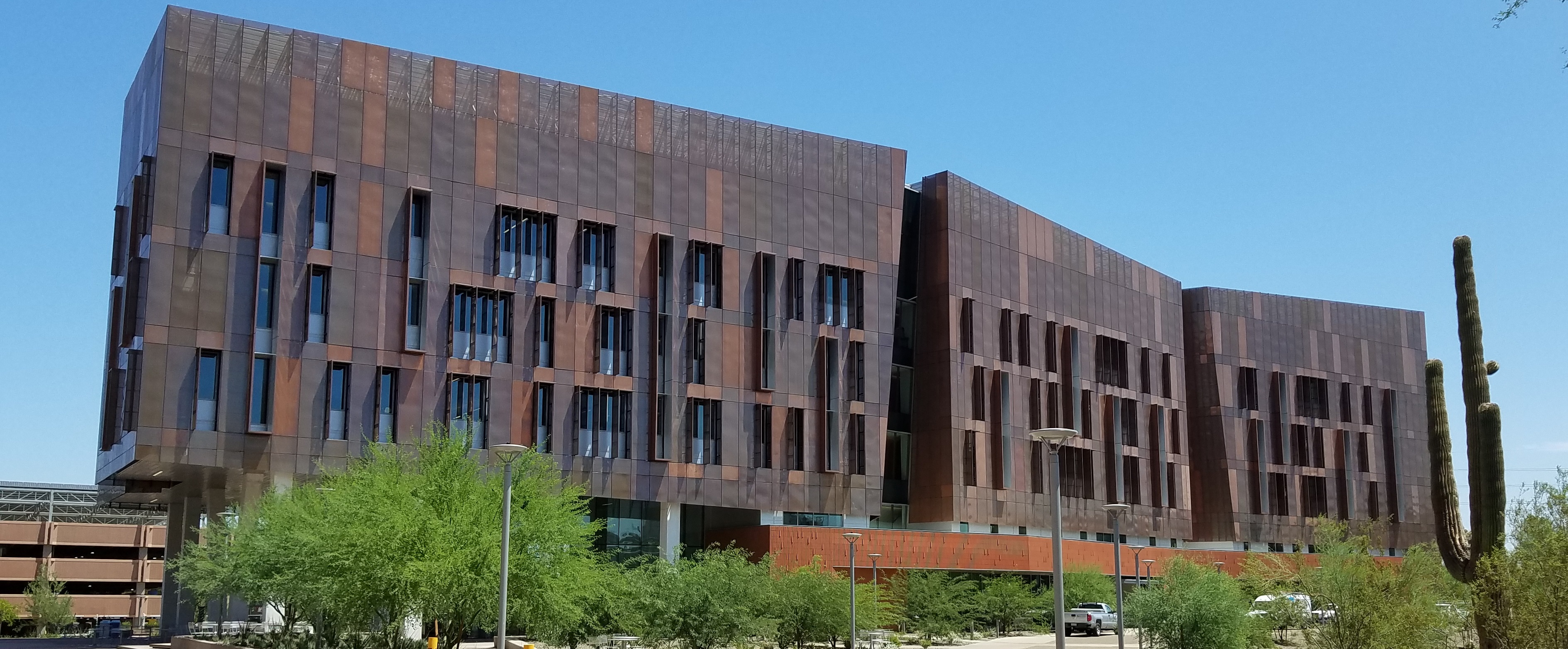
Biodesign Institute Building C on Arizona State University's Main Campus in Tempe includes state-of-the-art research support space designed specifically to promote and enable the creation of cutting-edge research clusters. The facility’s design leverages the university’s investment to maximize the opportunities for research growth.
Core Facilities at ASU
Arizona State University's Core Research Facilities provide exclusive access to cutting-edge equipment, personalized consultations and tailored services to propel your research goals to new heights, regardless of your budget, scale or timeline.
Unleash the full potential of your projects with our state-of-the-art resources and expert guidance. From high-tech instrumentation to customized solutions, we're here to empower your scientific endeavors and drive meaningful discoveries. Join the vibrant research community at ASU and tap into the limitless possibilities of ASU Core Research Facilities.
Ranked #1 for Innovation
ASU offers a cost effective, one stop shop that translates ASU's transdisciplinary expertise and wide array of equipment into solutions for each client.
- 30 distinct facilities in six focus areas.
- State-of-the-art equipment and in-depth expertise.
- Go-to destination for academic researchers and businesses.
Whether you're a two-person startup or a Fortune 500 company, our streamlined, pay-for-use model and flexibility can holistically cover your research needs.
Leverage the ASU Core Research Facilities
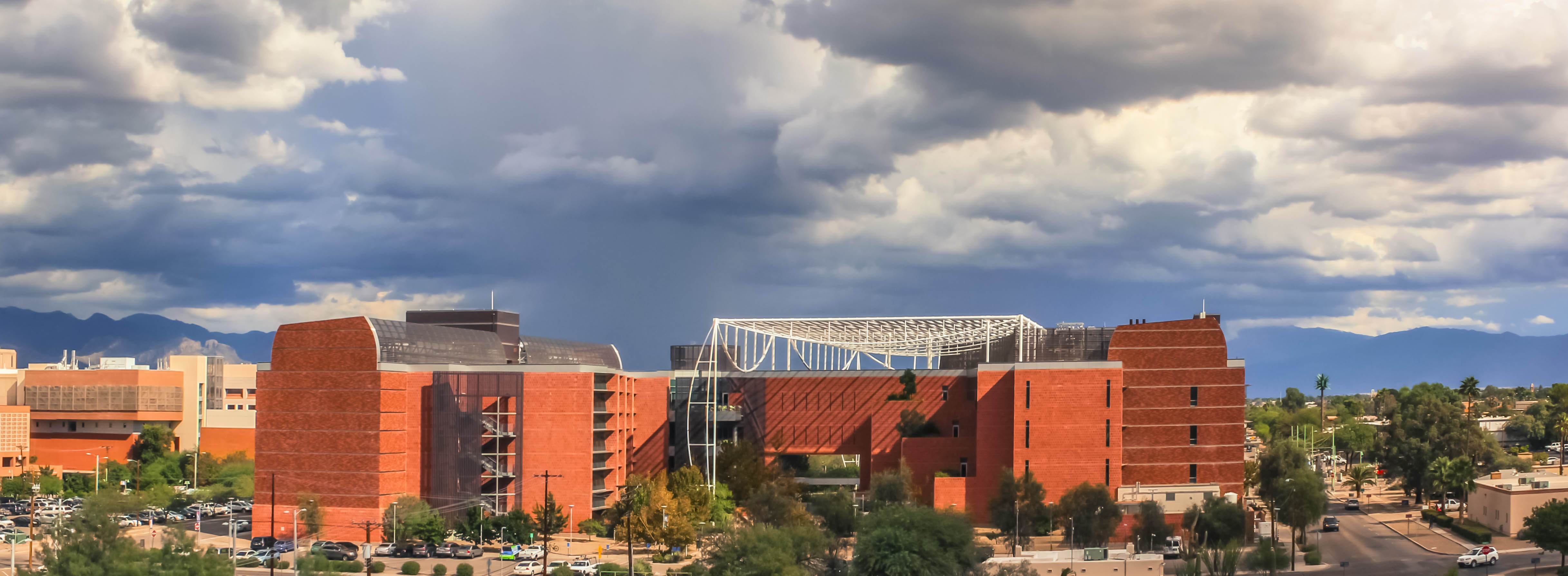
The BIO5 Institute at The University of Arizona in Tucson
The University of Arizona has been driving innovation since before Arizona was even a state. Collaborate with research faculty and leverage resources in Tucson, Phoenix, and more.
The University of Arizona is home to a comprehensive suite of core facilities. These state-of-the-art research hubs equipped with advanced instrumentation, expert personnel, and highly specialized services. Providing access to essential tools and expertise across a diverse range of disciplines, core facilities are an invaluable resource for researchers across academia, government, and industry.
U of A core facilities offer access to unique capabilities not available elsewhere on campus or even, in many cases, within the region. From advanced imaging and spectroscopy to high-throughput sequencing and computational resources, our facilities offer the support you need to realize the full potential of your research.
Whether you require technical assistance, experimental design guidance, or data analysis expertise, we’re here to support your project from inception to publication.
For more information, visit https://research.arizona.edu/facilities/search
Not sure where to start? Email your questions to researchservices@email.arizona.edu
At the Analytical & Biological Mass Spectrometry Facility (ABMS), we have state-of-the-art equipment and unparalleled expertise for the analysis of a variety of biological and small molecules…
The Biomedical Device Prototyping Service (BDPS) located in the Keating Building is a service provided for U of A researchers to assist in the development of new novel devices, modification to…
Laboratory for Electron Spectroscopy and Surface Analysis

The NAU Applied Research and Development Building in Flagstaff Arizona.
Core Facilities at Northern Arizona University
Northern Arizona University (NAU)is home to specialized, shared laboratory facilities that support advanced research and instruction across various scientific disciplines. The university has several core labs equipped with advanced instrumentation and staffed by experts who provide services to faculty, students, and outside industry partners.
Imaging and Histology Core Facility
The NAU Imaging and Histology Core Facility (IHCF) provides a wide array of imaging services to NAU faculty, students, as well as to our industry partners in Arizona and beyond.
We are committed to excellence in education, research, mentoring, and technology. Our team strives to make IHCF a model for Arizona’s Bioscience Roadmap while serving NAU’s diverse research and teaching interests in materials and biological sciences.
Our facility is housed within the College of the Environment, Forestry, and Natural Sciences, and is open to researchers here at NAU as well as to our partners in industry, who use the equipment with proper training. Our staff also provides fee-for-service imaging at appropriate, modest rates.
NAU Genetics Core Facility
The NAU Genetics Core Facility (formerly EnGGen) is the designated core facility for genomics research at Northern Arizona University. The Genetics Core Facility (GCF) supports a wide range of research including plant evolution, ecological community genetics, conservation genetics, microbial diversity, and molecular epidemiology, as well as human biomedical genetics and genomics.
World Class Healthcare Institutions

Core Services of Banner Research
Having supported more than 1,300 studies in 2024 alone, Banner Research is dedicated to transforming discoveries into new diagnostic, treatment and prevention methods for diseases such as Alzheimer’s, Parkinson’s, cardiovascular disease, respiratory disease, infectious disease, COVID-19 and cancer.
Our dedication to breaking scientific barriers is reflected in the array of research programs Banner offers. We leverage our programs to uncover new information that helps convert groundbreaking discoveries into improved patient outcomes. Banner’s Research programs enable academics, scientists and physicians to work cooperatively to expand medical knowledge and offer help and hope to patients and their families.
Learn more about Banner Research programs.
Banner Alzheimer’s Institute
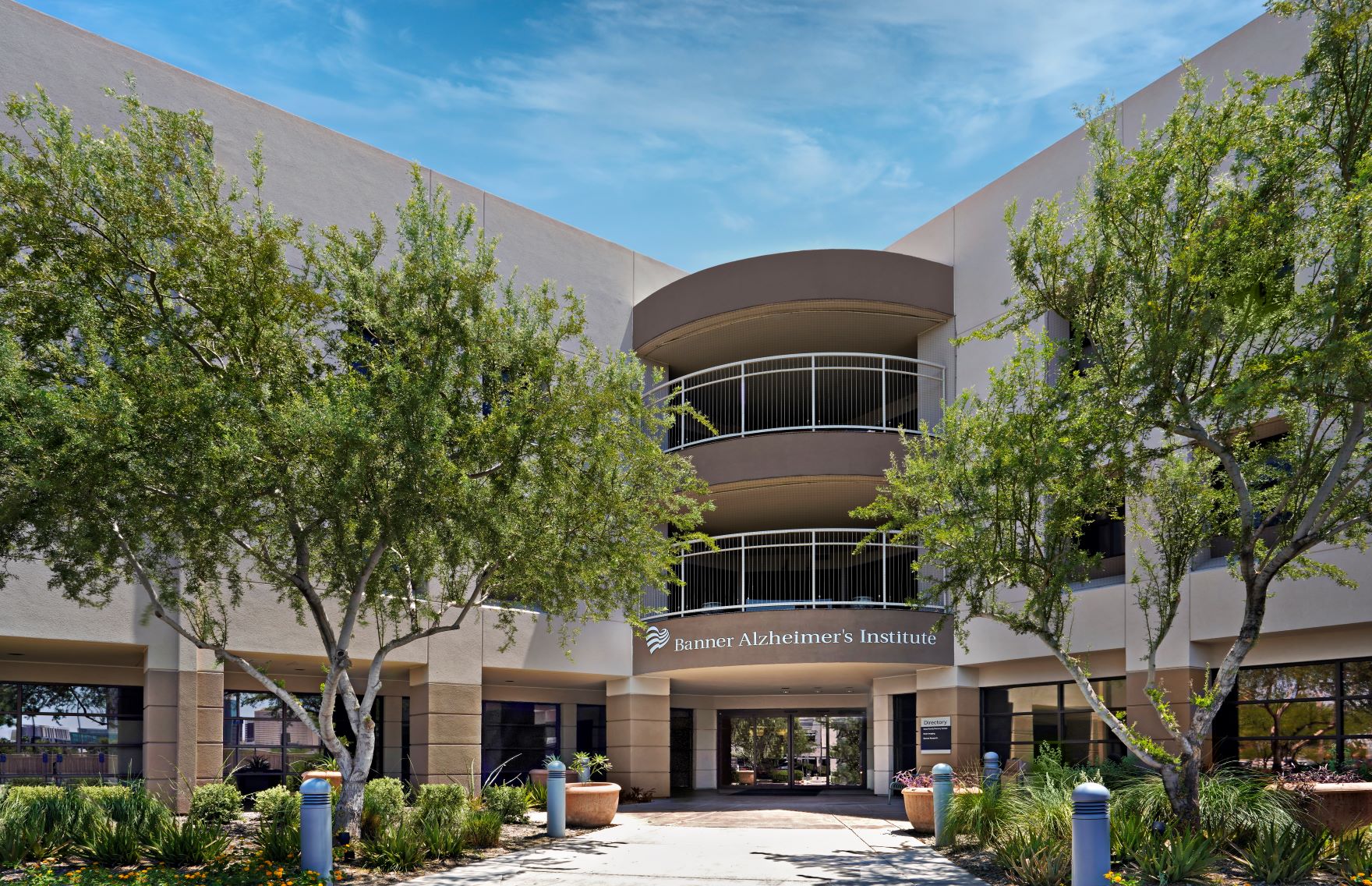
Brain Imaging Research
Brain imaging and computational analysis at Banner Alzheimer’s Institute is internationally recognized for clinical services, such as diagnostics and treatment evaluations, and research studies that explore the brain’s structure and mechanisms. Our advanced imaging techniques, include:
- Positron emission tomography/computed tomography (PET/CT)
- 3 Tesla Magnetic resonance imaging (3T MRI)
- Functional magnetic resonance imaging (fMRI)
Radiotracer Development for PET (Positron Emission Tomography)
Our facility’s state-of-the-art Cyclotron and Radiochemistry Laboratory is a regional resource for researchers developing innovative and specialized PET imaging radioactive isotopes. In the laboratory, we synthesize novel PET-labeled compounds and radiopharmaceuticals for pre-clinical and clinical evaluations.
Unlike most imaging facilities, we can eliminate the physical constraints of accessing short-lived radioisotopes and allows the imaging capabilities of the PET scanners to be used for research needs. Isotopes with a longer half-life – 60-120 minutes – can be shipped to regional PET scanners, if desired. However, for isotopes with a shorter half-life, Banner Brain Imaging supports PET scan imaging within the same facility.
Image Analysis
The Computational Imaging Analysis Laboratory (CIAL) serves as the image analysis and statistics core for the NIH-funded Arizona Alzheimer’s Disease Research Center, the Arizona Alzheimer’s Consortium, and multiple national and international collaborations. CIAL provides expertise in study design, statistical consultation, imaging and data analysis, data management, and grant development support for investigators across Banner Research and partner institutions. The laboratory is staffed by doctorate-level scientists, master’s-level analysts, and a dedicated data manager, with team members also serving as PIs and Co-Is on funded projects. Its infrastructure includes Linux and PC workstations, scalable virtual machines, and enterprise-class storage systems with secure backups. A comprehensive suite of imaging and statistical software is available, including SPM, FreeSurfer, FSL, PET and MRI brain-mapping pipelines, PUP, SAS, R, Stata, SPSS, and Matlab, as well as specialized tools for structural, functional, and connectivity analyses. Together, CIAL’s expertise, computing infrastructure, and advanced analytic pipelines provide critical resources for advancing Alzheimer’s disease and neuroscience research.
Providing an Optimal Research Environment
Pursuing innovation requires continual investment in resources, tools and technologies. Banner Alzheimer’s Institute maintains an environment dedicated to research by offering:
- Research operations embedded within our outpatient clinic
- Electronic medical record (EMR) integration for chart review and study feasibility
- On-site safety lab processing
- Advanced biomarker and cerebrospinal fluid (CSF) collection and processing
- GMP-compliant pharmacy with registered pharmacist and compounding capabilities
- Secure, temperature-controlled drug storage with IV infusion capability
- Standard and refrigerated centrifuges
- -20C and -80C freezers
- Backup power source for all critical systems
- Locked, fire-resistant file storage
- Private rooms with high-speed internet access for study monitor
To inquire about PET or MRI services, call (602) 839-7700. To inquire about research radiochemistry services, please email Dr. Andrei Koren.
Banner Sun Health Research Institute
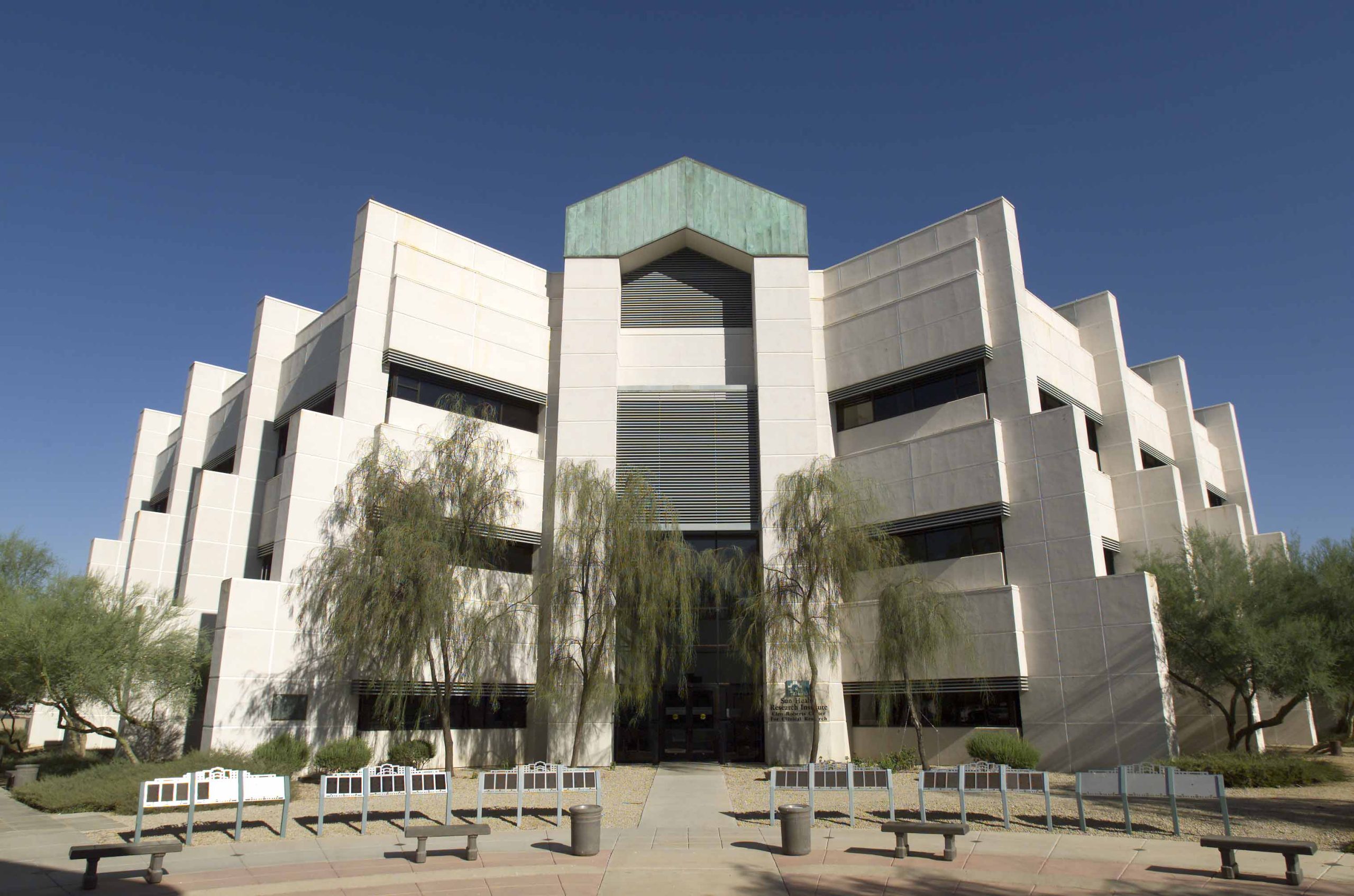
Fluid Biomarker Program
The Fluid Biomarker Program brings new expertise to research efforts for Alzheimer’s disease and other diseases. Finding simpler, easier and less costly ways to evaluate a person’s risk is important for both care and research. Getting an accurate early diagnosis could allow people earlier access to drugs - for example, those recently approved to treat Alzheimer’s disease - or allow for a more patient-centric management model. In addition, such tests could help researchers conduct clinical trials more effectively to assess potential new treatments and hypotheses that may slow disease progression.
- Learn how our lab provides efficiency in detection and analysis.
- Learn how our program advances precision medicine through noninvasive testing.
- Meet our dedicated team working together to advance research
To contact us, call 623-832-6628.
Brain and Body Donation Program
The world-renowned Brain and Body Donation Program (BBDP) studies the health and diseases of older adult volunteers in the greater Phoenix, Arizona area. We assess participants’ function during life and examine their organs and tissue after death. We also share banked tissue, biomaterials and biospecimens with qualified researchers worldwide.
The program now shares more than 20,000 human tissue samples with scientific groups worldwide every year, greatly amplifying scientific impact. In addition to Alzheimer’s, the program is contributing to research on Parkinson’s disease, other brain diseases and normal brain aging. Since 1987, more than 3,000 community members have contributed to our scientific efforts.
For Researchers/Tissue Request
To request rapid autopsy samples, antemortem or postmortem biofluids, research data or details on our histological and molecular services, please begin by registering and completing the required forms. Your request will be reviewed and you will receive approval or a response via email within 10 days. Registration must include:
- A brief CV (such as an NIH biosketch)
- A one-paragraph summary of intended tissue use
- Details on diagnoses, tissue types, formats, quantity, and specific requirements
This process typically involves several email exchanges to finalize details.
- Learn more about requesting biological human samples and our services:
- Researcher Registration Guide
- Meet our dedicated team working together to advance research
- Take a virtual tour of our program:
Contact our Brain and Body Donation Program team:
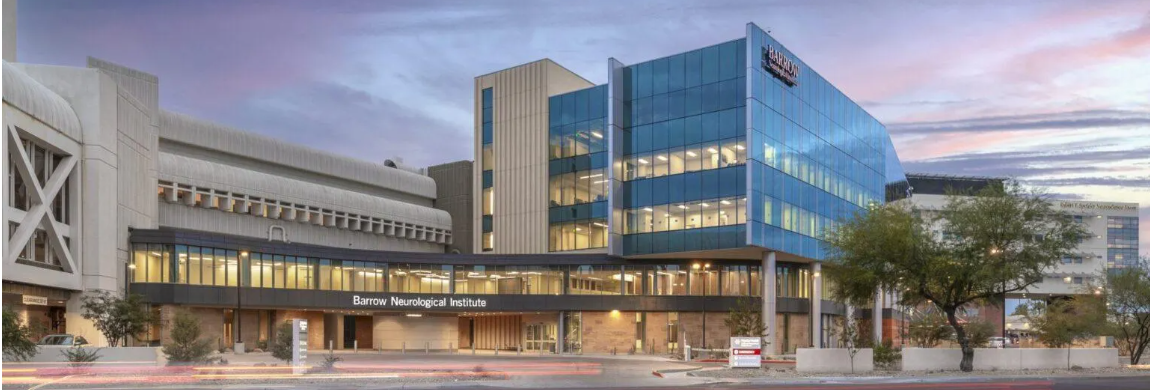
The Barrow Neurological Institute (BNI) in Phoenix, Arizona. (Image courtesy of BNI)
Core Resources at Barrow Neurological Institute
The Barrow Neurological Institute (BNI) is a leading center in Phoenix, Arizona, dedicated to the treatment, research, and education of neurological diseases and injuries, including complex brain and spine conditions, stroke, and movement disorders like Parkinson's disease.
BNI is the world's largest dedicated neurosurgical center and the busiest neurology and neurosurgery center in the United States. BNI offers advanced treatments, participates in cutting-edge clinical trials, and provides comprehensive residency programs, attracting patients from around the globe.
For more information, visit
https://www.barrowneuro.org/for-physicians-researchers/research/core-facilities-and-biobank/
BNI Core Facilities
Barrow-ASU Center for Preclinical Imaging
Access to state-of-the-art imaging technology and expertise for researchers in the Phoenix area.
Biobank Core Facility
Facilitating worldwide research to better understand the causes of disease and to help develop more effective treatments.
Flow Cytometry & Genomics Core Facility
Request use of our BD FACSAria II cell sorter with violet (405 nm), blue (488 nm), and red (633 nm) lasers.

Mayo Clinic in Phoenix Arizona is undergoing a $1.9 billion expansion.
Core Shared Services at Mayo Clinic
Mayo Clinic's Office of Core Shared Services coordinates investigators' needs for research resources available from its core facilities. Mayo Clinic Research Core Facilities are centralized, shared research resources that provide access to instruments, technologies, testing and services. They provide expert technical and consultative services to investigators engaged in basic science research and clinical trials. These facilities expand investigators' capabilities, foster collaboration, and accelerate discovery and translation.
Research core facilities make it possible for investigators to focus on their own areas of expertise, augmented by complementary knowledge and assistance from research cores. As a result, promising findings and therapies can more quickly move from the lab to the clinic to benefit patients.
Mayo Clinic Arizona
More from Mayo Clinic
Services and resources offered by Mayo Clinic Research Core Facilities are available for research and clinical investigators at Mayo Clinic. Also, some services are available for researchers external to Mayo at an affordable cost with reasonable turnaround times.
Explore Core Facilities at all Mayo Clinic Sites
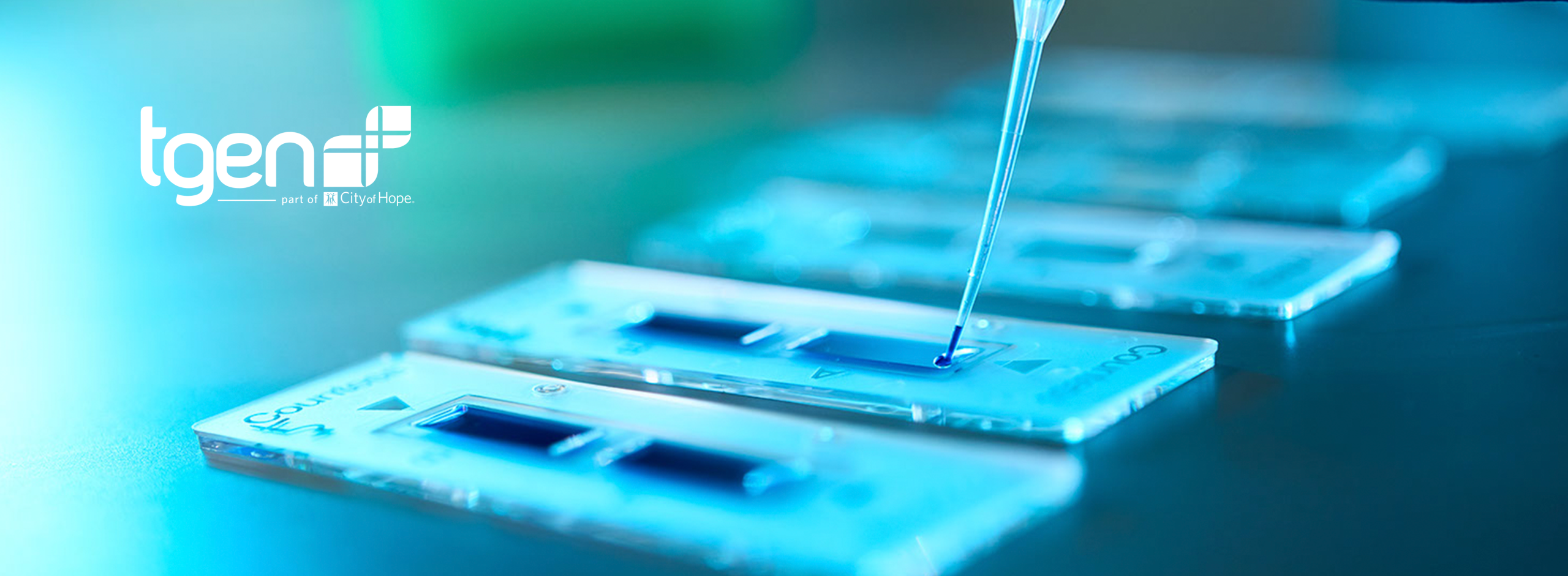
Unleash the power of your biological samples through TGen’s suite of integrated services
TGen’s advanced research and diagnostic services empower your work with unparalleled precision and insights. Whether you’re delving into complex biological systems, advancing clinical studies, or exploring multi omics data, we offer a full suite of specialized services designed to meet the demands of today’s biomedical challenges.
TGen Clinical Laboratory
TGen Clinical Laboratory provides cutting-edge genomic and molecular testing to advance precision medicine and improve patient outcomes.
TGen Collaborative Sequencing Center
Providing investigators with access to best-in-class short and long read sequencing instrumentation to support all analysis needs including whole genome, telomere-telomere assembly, exomes, RNA sequencing, and full-length transcript sequencing.
TGen Center for Spatial Multi-Omics (COSMO)
With spatial transcriptomics, you can profile the expression of a large tissue at sub-cellular RNA resolution. Investigate individual cells while preserving cellular niches and anatomical structures for histological analyses.
TGen Integrated Mass Spectrometry Shared Resource
Our specialized services support biologists in unraveling the complexities of cancer and neurodegenerative diseases, facilitating the discovery of biomarkers and therapeutic targets. This includes plasma proteome profiling using Illumina Protein Prep, powered by SOMAmer technology
TGen Integrated Microbiomics Center
Applying advanced laboratory and computer technology to explore the next frontier in our understanding of how microbes relate to human health and disease: the human microbiome.
Incubators & Accelerators with Core Services


